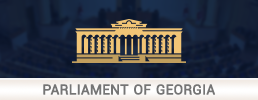2024-05-11
„Good Evening, Ladies and Gentlemen!
Thank you everyone for being here today. Personally, I felt it was crucial to gather in this format. Our aim is to address any questions you may have about the current processes.
With your permission, I'd like to kick things off with a brief introduction before we transition into a question-and-answer session. Each of you will have ample time to pose questions, receive answers and seek clarification if needed.
First and foremost, I'd like to address concerns regarding the policy pursued by the government and overarching vision. Recently, there has been a lot of speculation, particularly surrounding the foreign policy orientation. There's been talk of a proposed Draft Law linked to altering the country's foreign policy, which is speculative and manipulative. Let me reiterate what should be crystal clear to everyone: the government has a well-defined trajectory and this trajectory isn't just outlined in broad strokes but is explicitly stated in the Constitution of Georgia.
You may well be aware that in 2017, the Georgian Dream party, without the support of the opposition, introduced a provision into the Constitution of Georgia. This provision defines integration into both the European Union and NATO as a constitutional responsibility of the government.
Certainly, our political and foreign policy direction is unequivocal. Under the leadership of the Georgian Dream governance, concrete achievements and advancements have been made in this realm. It's worth noting that all significant strides towards European Union integration were accomplished during our tenure, including the signing of the Association Agreement, the Deep and Comprehensive Free Trade Area (DCFTA) agreement, visa liberalization and obtaining candidate status. We've consistently urged our partners to foster closer ties between Georgia and both the United States and the European Union. For instance, we've called upon the U.S. to facilitate visa liberalization for Georgian citizens, sign a Free Trade Agreement and establish direct flights between Georgia and the U.S. Similarly, with the European Union, we've advocated for the initiation of negotiations with Georgia in December, as per the expected timeline. Our stance is clear: we seek enhanced relations and deeper cooperation. However, it's unfortunate that there seems to be some restraint from certain quarters. While there may be valid reasons for this, we refuse to characterize it as an anti-Georgian sentiment. On the contrary, our policy remains completely transparent, with a firm willingness to forge even stronger bonds between Georgia and both the European Union and the United States. We welcome any proactive steps from the other side, as they will only serve to strengthen our mutual ties.
Regarding our stance towards Russia, there has been speculation. I'd like to clarify the accomplishments of our government, contrasted with the actions of the previous administration, and highlight our current achievements in this area.
Let's reflect on the period from 2004 to 2012. During this time, Russia significantly expanded its influence in Georgia, including the occupation of 20% of our territories through the recognition of so-called independence. Many strategic assets were also transferred to Russian control under the previous government's watch. However, since the inception of the Georgian Dream government, there has been no territorial advancement by Russia into Georgia, nor have we relinquished any strategic assets to Russian entities. Additionally, the electoral support for pro-Russian candidates and parties has significantly declined, from approximately 20% during the previous administration to just 1-2% today. Under our government's leadership, we've successfully pursued legal battles against Russian aggression, securing victories in international courts in The Hague and Strasbourg. Moreover, since the onset of Russia's military aggression in Ukraine, we've joined over 600 resolutions supporting Ukraine's territorial integrity and sovereignty while condemning Russian military actions. In contrast to the previous government's lack of progress towards integration, our administration has achieved significant milestones on the path to European integration. Importantly, there has been zero expansion of Russian influence within our borders during our tenure. These tangible results underscore our commitment to safeguarding Georgia's sovereignty and advancing our European integration agenda. It's imperative for the public discourse to focus on these achievements and developments moving forward.
As for the Law itself, whether the Law is Russian or not, there must be specific signs of similarity and all this must be confirmed by evidence. What does the Russian Law provide for - I will list the most basic points. For example, the Russian Law provides for the entry of direct state control into the organization, state control can directly enter the office, gain exposure to the organization and carry out on-the-spot control over any document, activity of the relevant organization. Second - the Law provides for the suspension of the organization's activities, moreover, if necessary, the relevant organization can be voided. Russian Law also provides for the branding of organizations and not only organizations, relevant people or organization representatives in a specific form. For example, when a specific person, a representative of an organization appears on television, it must be subtitled below that he is a foreign agent. Also, criminal liability is provided by Russian Law - these are the main points. I listed about 5-6 points. You can see that none of these points are provided for in the Georgian Law, that is, from beginning to end, the Georgian Law is in accordance with European standards, the only thing it provides for is the publication of a financial declaration by the organization once a year, nothing beyond that. Therefore, when you have nothing, when one does not resemble the other at all, it is naturally impossible to put a sign of equality between the two Laws. It is the simplest logic, it is the simplest logic that should be easily read by everyone. Much stricter laws than this, it has been said many times, are in force in the USA. Here too, for example, criminal liability is provided for, people are subject to an American law called the Foreign Agents Registration Act, etc. The Russian Law is very similar to the American Law, but in fact there is no connection, no similarity between the Georgian Law and here the Russian and there the American Laws, due to the fact that neither the Russian nor the American Law is in accordance with the European standards of human rights.
The reason behind calls for the repeal of this Law is straightforward: many oppose transparency, preferring to keep their finances hidden. It's natural for individuals to feel discomfort with such transparency. However, while this position is understandable, it's not acceptable to us. We firmly believe that the only acceptable approach is one that prioritizes disclosing finances to Georgian society and ensuring transparency in financial matters.
As for the initiation and necessity of this Law, it stems from the negative practices that arose in Georgia due to a lack of transparency. Let's recall the types of activities financed from external sources, including specific organizations' involvement in revolutionary processes, direct funding of LGBT propaganda, attacks on the Orthodox Church, drug propaganda and blocking of economic projects. For instance, consider the recent completion of the Kvesheti-Kobi tunnel, a remarkable 9-kilometer-long project. It's a significant infrastructure achievement for Georgia. However, there were objections from certain NGOs, attempting to obstruct this crucial economic project with flimsy excuses. Fortunately, their efforts were unsuccessful, but the incident highlights the need for transparency. Similar challenges were faced with hydroelectric power plants and other projects. These negative practices necessitated the adoption of this Law to address and prevent such issues in the future.
We must recall the turbulent events in Georgia over recent years, including two attempted revolutions, one in 2020-21 characterized by falsified PVT results and general assessments, nearly leading to extraordinary elections. We were compelled to sign a political agreement, stipulating early parliamentary elections if we didn't secure 43% in local elections. Then in 2022, NGOs took a direct political stance, demanding the government's resignation and the formation of a technical government. This direct involvement in politics contradicts the essence and purpose of NGOs and is unacceptable. Since 2016, with the exception of 2017, Georgia has experienced constant turmoil. From the polarized parliamentary and presidential elections to the challenges posed by COVID-19 and the subsequent electoral tensions, the country has been in a state of continuous upheaval. The war in 2022 further deepened polarization, culminating in a direct revolutionary attempt in June 2023. Throughout this period, artificial polarization has plagued our nation. One of the primary reasons for this instability is the opaque spending of funds, often utilized to foment unrest. As stewards of our country, we have a responsibility to ensure peace and stability for our people. The initiation of this Law serves this crucial objective: to finally bring peace to our nation, eradicate polarization and break this vicious cycle of unrest. That is the essence of this Law.
Lastly, I must address the issue of violence, which we all fundamentally oppose. Recent acts of violence highlight a disturbing trend. The first incident involved Elisashvili's violent behavior, which not only went uncondemned but was also implicitly endorsed by certain TV channels and other entities. This blatant approval of violence is deeply concerning. Subsequently, there were further instances of violence against journalists, primarily psychological in nature. One journalist from POSTV, in particular, faced egregious psychological abuse, akin to what can only be described as orc-like behavior. A 20-year-old girl was subjected to this cruelty, which is utterly reprehensible. What's even more disturbing is the response from certain individuals. A musician, albeit talented in their craft, openly supported this violence by liking and sharing the content on social media, garnering thousands of likes. This behavior is unacceptable, especially when it involves representatives from various sectors such as the arts, NGOs, politics and journalism. It's incomprehensible and cannot be tolerated.
Furthermore, there were alarming instances of coordinated harassment directed towards artists and athletes. Imagine receiving thousands of messages, a barrage of psychological violence, orchestrated by a coordinated call center. This targeted harassment, delivered through phone calls and social media platforms like Facebook, was directed at specific individuals in the arts and sports communities. Shockingly, there was no dissent against this behavior; instead, it was met with widespread approval.
We must also acknowledge the psychological violence perpetrated against politicians, where they are unjustly labeled as traitors and subjected to derogatory epithets. Such actions are clear indicators of the severity of the situation we are facing.
I want to emphasize the absolute unacceptability of double standards. It's deeply concerning that these acts of violence have gone unanswered, including by diplomats. I refrain from singling out specific groups, including NGOs, politicians and journalists from certain television stations, but it's clear that a double standard exists and it's unacceptable. Statements condemning violence against perpetrators only emerged recently, which is troubling. I reiterate that any form of violence is unacceptable, including violence against perpetrators. I encourage everyone to refrain from engaging in any acts of violence, regardless of the target. It's imperative to investigate all acts of violence thoroughly. I urge everyone to reject double standards and condemn violence unequivocally, irrespective of political affiliations. While ambassadors may have their political leanings, violence must be condemned regardless of these biases. This is my plea and request to all.
Thank you very much for your attention!"












